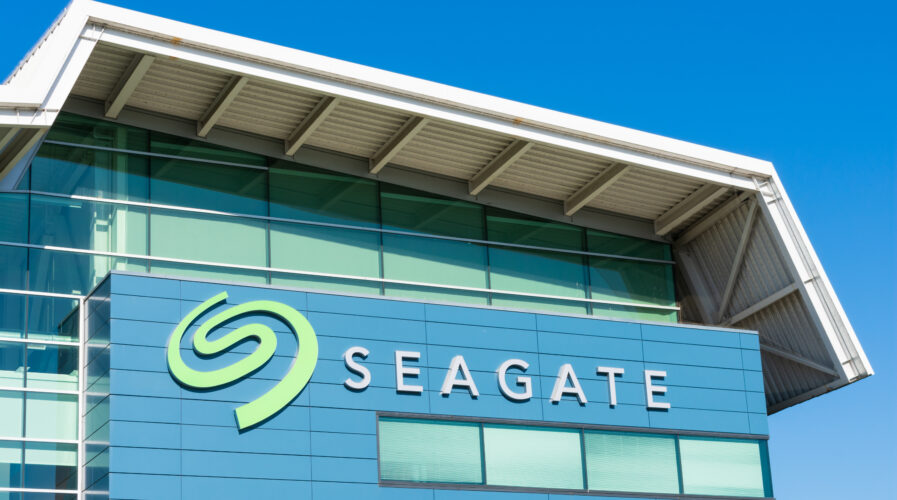
(Source – Shutterstock)
A secured and simplified data migration with Seagate Lyve Cloud
As Seagate’s Lyve Cloud is designed to enable organizations to move data seamlessly across private, public, and compute clouds, the first question that most businesses would have is how do they deal with their current vendors.
Can they move their data without going through the complexities of vendor lock-ins? Should they be concerned about egress and API fees? And how secure will the data migration process be for them?
According to Ravi Naik, CIO and Executive Vice President for Storage Services at Seagate, the reaction they get from customers is rather interesting. While there are some concerns, the reality is businesses are actually surprised that a vendor is finally making storage easier for them.
Acknowledging that vendor lock-in can be complicated, Naik explained that the way Seagate has a few ways of dealing with this. The first step is to normally get the customer to start storing new data onto Lyve Cloud. It’s the easiest way and a quick change for them as they can point from one service to another within a matter of minutes. This also enables them to start storing data at a lower price, enabling them to increase their data storage needs with a lower-cost storage model.
The next step is about migrating existing data. For this, Naik said there are a few ways of dealing with this as well. The first step is to understand the customer’s data to ascertain the storage and data retention means.
“If it is anywhere from 12 to 24 months, we advise our customers to let the data expire in place. They do not have to worry about egress passes. For customers that need to keep the data for the longer term, we offer various services. This includes credits for moving their data off. We move the data physically using our mobile devices. These devices help customers move data physically. We also have a tape migration service for customers, whereby we have data sitting on tape, that can be digitized and provided to the cloud. We offer all of these additional add-ons to customers at no extra cost. And they’re able to really help with egress and migrations,” said Naik.

Ravi Naik, CIO and Executive Vice President for Storage Services at Seagate
Secure data migration
As businesses might have concerns about how secure the data migration service will be, Naik pointed out that Seagate has a mechanism for customers to migrate data from any of the other cloud service providers to Lyve Cloud.
“We are hosted on Equinix in most of the data centers around the world. Equinix gives us the ability to have direct connection to any of the other cloud service providers. It’s up to millisecond latency. Customers can very easily migrate their data. And all of this data is encrypted. The data is encrypted in motion and while at rest. Hence, from a security point of view, it is very well taken care of,” added Naik.
Lyve Cloud also adheres to the most stringent, globally recognized data security standards and is ISO 270001:2013 and SOC2 certifications. Naik also highlighted that Seagate is very close to getting HIPAA certification in the US for healthcare data. They also have the FedRAMP, which is for the federal government certification on its way.
“So, from a security perspective, we are very well taken care of we address all the requirements of customers. Now when it comes to the physical movement of data, our physical movement devices are encrypted devices. As a result of that, when a customer loads the data on the device, the customer has the encryption keys. And when the data reaches the destination, the customer has to unlock that data before it moves into our security point of view. It’s really encryption, that takes care of everything,” added Naik.
Data and analytics through Lyve Cloud
As Lyve Cloud was launched about two years ago, the target was primary workloads, namely backup and disaster recovery. The reason being this data was an easy workflow for customers to migrate. Customers saw the service as low risk and something they could take advantage of, especially with the pricing being nearly 70% lower than competitors.
“That was the starting point. And then we focused on the content repository, targeting customers like Zoom and CrowdStrike. These are organizations that generate massive amounts of data, either video or log analytics data, and they need an efficient storage mechanism. That’s where Lyve Cloud comes into the picture. So these are the two workloads that were brought to market. And we got a very good customer engagement,” said Naik.
With businesses increasing their data stored on the platform, the next goal was how to generate value from it. This could be done either by using the tools provided by Seagate or running their own analytics solutions that are using the multi-cloud architecture. They could actually run their application stack in any of the cloud service providers.
“There were customers who wanted a low latency high performing full stack analytic solution. And this is where we announced our full-stack web service, which is going to be inclusive of storage, compute, and an application stack for data engineering. And along with that, customers will have a single solution available within the lightboard environment, to really not only store data, but also do analytics on large scale mass capacity, workloads and extract value,” added Naik.
The Lyve Cloud Analytics platform is a complete cloud-based analytics solution that includes storage, compute, and analytics, to help Lyve Cloud customers lower the total cost of ownership and accelerate time to value with their DataOps and MLOps.
READ MORE
- 3 Steps to Successfully Automate Copilot for Microsoft 365 Implementation
- Trustworthy AI – the Promise of Enterprise-Friendly Generative Machine Learning with Dell and NVIDIA
- Strategies for Democratizing GenAI
- The criticality of endpoint management in cybersecurity and operations
- Ethical AI: The renewed importance of safeguarding data and customer privacy in Generative AI applications


